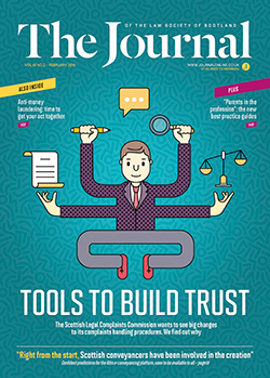The right to snoop?

“Britain has a new human right, granted to us by the judges of the European Court of Human Rights in Strasbourg… British bosses have just been given the freedom to spy on their employees’ emails.” Not perhaps the most accurate of summaries of Barbulescu v Romania (Application 61496/08) [2016] ECHR 61.
Article 8(1) of the European Convention on Human Rights states: “Everyone has a right to respect for his private and family life, his home and his correspondence”. Few would argue that such a right was inappropriate. However, it is often effectively pled as a right to “not get caught”. The furore surrounding the Barbulescu case appears to ignore some crucial factors in the court’s decision:
1. The messaging account in question was set up for professional purposes.
2. The employer had a clear policy prohibiting personal use.
3. The employee told his employer that all messages on the account were work related.
Necessary and proportionate
Under article 8(2), interference with the exercise of the right to privacy may not be unlawful if to do so is “necessary in a democratic society… for the protection of the rights and freedoms of others”. For the article 8(2) test to be met, the actions in question must be “proportionate”. In Halford v United Kingdom [1997] ECHR 32, a police inspector successfully claimed a breach of article 8 when her phone calls were monitored despite an assurance that that would not take place. In Copland v United Kingdom (Application 62617/00) [2007] ECHR 253 the issue was less extreme and there was a breach of article 8 where there was no IT policy in place and the employee was not told that they might be monitored.
Rather than endorse “snooping” on employees’ private messages, the court in Barbulescu confirmed that, in the absence of a warning to the contrary, employees have a reasonable expectation of privacy in relation to telephone calls, emails and internet usage – even where conducted in their employer’s time. It was unclear whether a warning had been given to Barbulescu. Regardless, the court was satisfied that article 8 was engaged when his employer accessed his work account which contained a number of private and intimate messages.
The employee had claimed in the domestic courts that his dismissal was unlawful under the domestic Labour Code. His claim failed. The question for the European Court of Human Rights was whether the state had struck the right balance between the employer’s interests and respect for the employee’s private life. The court considered that it was not unreasonable for an employer to want to verify that working hours were spent working. The employer had only looked at this particular account and after having been assured by the employee that the account had not been used for personal purposes; accordingly the court considered that the monitoring had been proportionate. The court also noted that there were other domestic laws which protected the right to privacy, including criminal laws and the domestic legislation which implemented the EU Data Protection Directive.
In this issue
- A trainee perspective on leadership
- Beyond the Bribery Act
- Legal IT: the potential of blockchains
- Directors: the parent over your shoulder
- Ten for starters
- Reading for pleasure
- Journal magazine index 2015
- Opinion: Daniel Donaldson
- Book reviews
- Profile
- President's column
- The big 4-0-0 approaches
- People on the move
- Balance in redress
- Pension allowances: the last chance
- E-conveyancing: the real deal
- Deeds of conditions: not dead yet
- Anti-money laundering: a call to action
- New challenges, new CEO
- Rape terms before the appeal court
- Another year of change
- Defending the abduction
- The right to snoop?
- Fond farewell
- Scottish Solicitors Discipline Tribunal
- Dilapidations: enforcing the bargain
- Title out of nothing
- Charged and ready
- Updates from the OPG
- The family way
- Conflict of interest: the questions still come
- Seeking growth
- Fraud: a battle of wits
- Light to a Safe Harbour
- Through the client's eyes
- Ask Ash
- Law reform roundup






